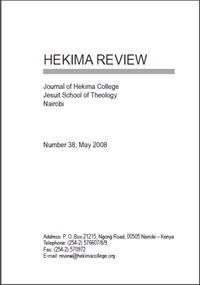History and Theory of Scripture Translations
Keywords:
History, Theology, ScriptureAbstract
This paper argues for the importance of Bible translations through its historical achievements and theoretical frames of reference. In fact, the missionary expansion of Christianity owes its very being to translations. The Early Christian communities knew the Bible through LXX translations while the contemporary Churches continue to use various translations. Moreover, translations participate in shaping Scripture interpretations, especially when a given interpretation depends on a particular translation, though a particular interpretation can also determine a given translation. Translation theories have been developed to clarify how the transactions between the source and the target cultures are handled. Some of these theoretical frames are discussed in this paper, namely the functional equivalence, relevance, literary-functional equivalence and intercultural mediation. The historical overview and the discussion about Bible translation theories have contributed to highlight the role of Africa in translation history, as well as the impact of E. Nida on translation theories.
Downloads
Downloads
Published
Issue
Section
License
Copyright (c) 2024 Hekima Review

This work is licensed under a Creative Commons Attribution-ShareAlike 4.0 International License.


